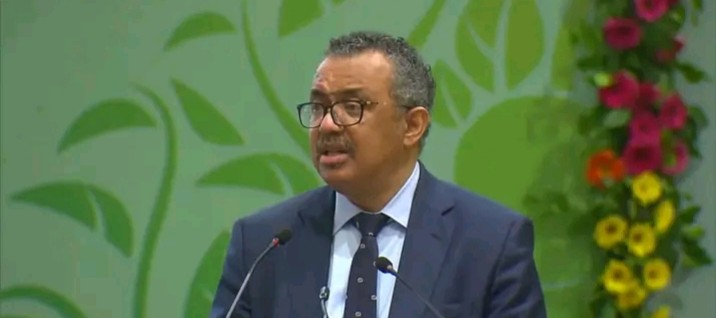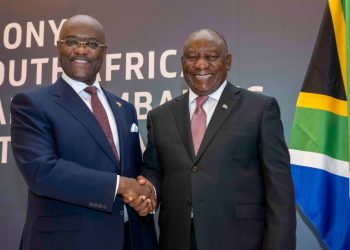The World Health Organisation Director General, Dr Tedros Ghebreyesus has said that nearly one-third of the world’s population has not yet received a single dose of a COVID-19 vaccine, including over half of health workers and about two-thirds of older people in low-income countries.
Ghebreyesus who disclosed this in his remarks at the World Bio Summit in Korea on Tuesday, said vaccination gap imperils the global recovery which puts the world at risk and the danger of new, more dangerous and deadly variants emerging is real.
WHO DG urged the world to learn the lessons from this pandemic. “One of the most important lessons is that manufacturing capacity for vaccines and other tools is concentrated in too few countries.
“Expanding local production and strengthening local regulatory capacity are both essential for reducing health inequities between and within countries.
Next-generation vaccines, therapeutics and diagnostics will be crucial to responding to future pandemics – but to be truly effective in responding to a global threat, they need to reach the countries that need them most. Equity is key”, he added.
Ghebreyesus said WHO and its partners established the mRNA Technology Transfer Hub in South Africa to give low and lower-middle income countries the know how to rapidly-produce mRNA vaccines for COVID-19, and other global health threats including malaria, tuberculosis and cancer and other health problems.
He further added that the Hub now has 15 country recipients around the world. “But for new facilities to work, require skilled workforce trained in industrial grade biomanufacturing processes. This is critical. That’s why WHO is establishing global biomanufacturing initiative, with its first Global Training Hub in the Republic of Korea.
DG revealed that for more than a year, discussion has been going on with the Korean government, including the Assembly Speaker who visited Geneva in November 2021, and discussions with various Ministers.
Ghebreyesus said he saw a very strong commitment from the Government, which is why WHO decided to establish the training center in Korea, thanking the President for accepting this, he hoped the Korean centre will be a pathfinder and a game-changer in building manufacturing locally and ensuring equity in the world.
WHO DG further said Nigerian President, Muhammadu Buhari’s presence will help in strengthening the cooperation between high- and low- and middle-income countries. “Also key is building regulatory capacity, which has both necessary technical expertise and the trust of their communities”.
He explained further that commercial sustainability is another crucial factor. “If big facilities are built, this requires significant capital and has significant maintenance costs. And while smaller facilities are cheaper to maintain, they would have less impact in the event of another pandemic.
“Finding the balance between those is critical. Of course, manufacturing and training alone are not enough. We also need the multilateral structures in place to support them. To prepare for health emergencies of the future, we must strengthen the global health architecture and promote the sharing of scarce resources.
“We can do this through the creation of a robust platform for equitable access to vaccines and other life-saving tools, building on the success of the ACT Accelerator, the Pandemic Influenza Preparedness Framework, and other multilateral initiatives.
“With the right investments, we can reduce the risks of future epidemics and pandemics, mitigate the impacts, increase the resilience of our health systems, and build a healthier, safer, fairer future”, he thanked Korea for its leadership in enhancing manufacturing capacity of essential health products for the world.
Covid-19: Why more new deadly variants could emerges – WHO DG
Please login to join discussion











